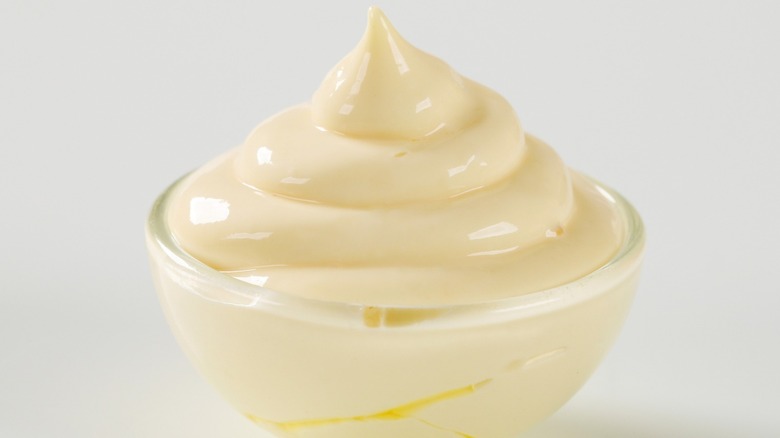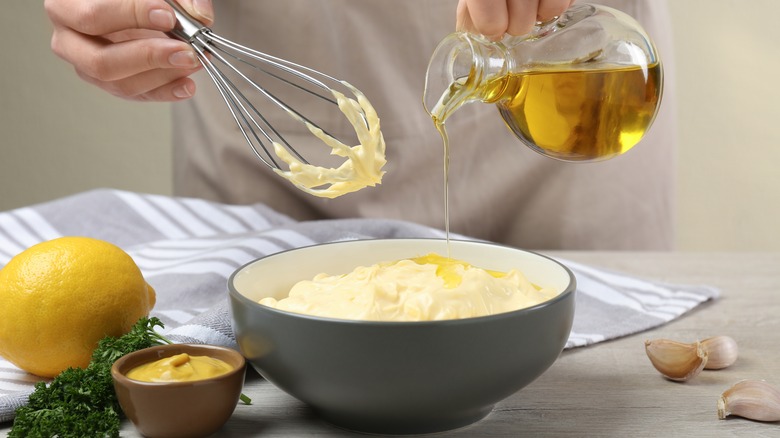The FDA Has Pretty Strict Guidelines On What's Considered Mayo
From tuna salad to French fry dipping sauce, mayo lovers around the globe know one thing to be true: No matter how hard the posers try, mayonnaise, in all of its eggy goodness, is the condiment supreme. Care to challenge us? Well, just ask the U.S. Food and Drug Administration (FDA).
In 2015, the FDA issued a letter of warning to Hampton Creek Foods, notifying them that their product "Just Mayo" was marketed in violation of FDA regulations (per CNN). The makers of the vegan imitation mayonnaise were accused of "misbranding," as the product failed to conform to the FDA's standards for identifying mayonnaise. What's more, their label, which prominently features the word "mayo" beside the image of an egg, was deemed misleading. As far as the FDA is concerned, a creamy spread can only wear the prestigious title of "mayonnaise" if it contains a few key ingredients — and eggs are definitely on the list.
What makes mayo, mayo
The polarizing condiment has been the subject of many heated debates as mayo enthusiasts face off against the never-mayo clan. However, the FDA is here to say that what makes mayo — well, mayo — is one ingredient that is not up for debate. The Federation of American Scientists explains the FDA must provide guidelines that adhere to the Federal Food, Drug, and Cosmetic Act's (FFDCA) regulations regarding the ingredients a particular product must contain, how it's manufactured, and which common names it can be marketed under.
In 1977, the federal government established the guidelines for mayonnaise, which can be found in the Code of Federal Regulations, Title 21, Chapter I, Subchapter B, Part 169, Subpart B. The FDA states mayonnaise must include "egg-yolk-containing ingredients" such as whole eggs, liquid egg yolks, frozen egg yolks, or dried egg yolks. The production of federally approved mayonnaise also calls for an acidic ingredient like vinegar, lemon juice, or lime juice. And, of course, no mayo would be complete without the pièce de résistance — vegetable oil. To be in accordance with FDA regulations, 65% of the weight of the mayo must come from vegetable oil. Some other ingredients are allowed, such as salt, sweeteners, and spices, so long as those spices aren't turmeric or saffron.

